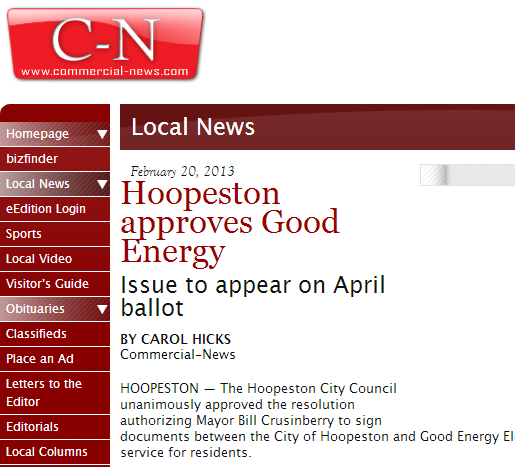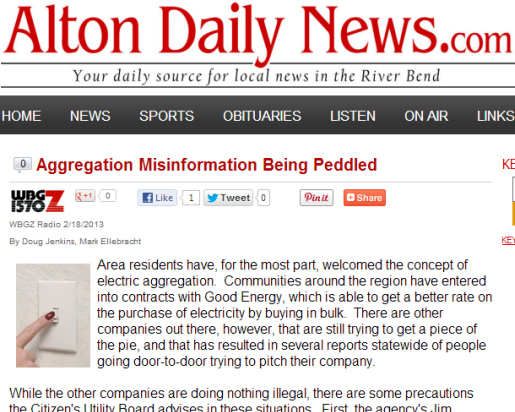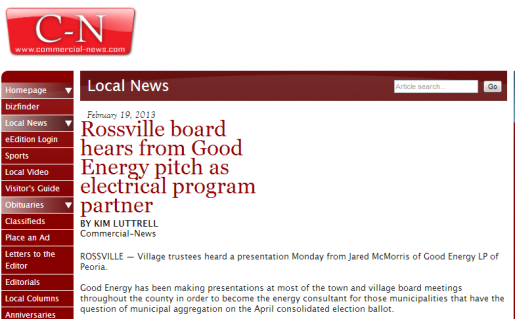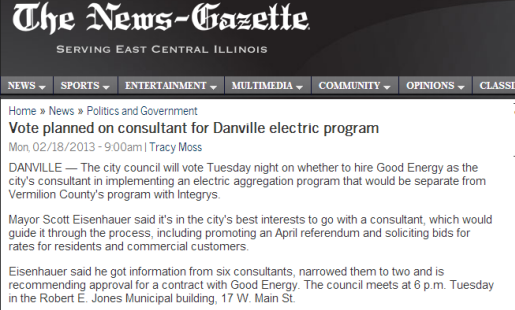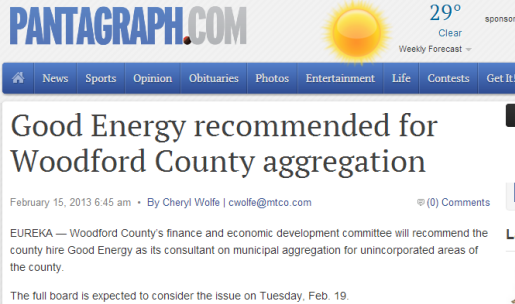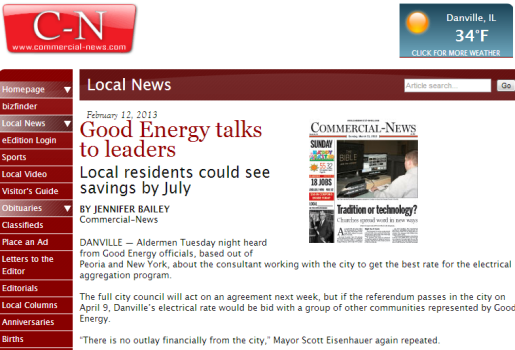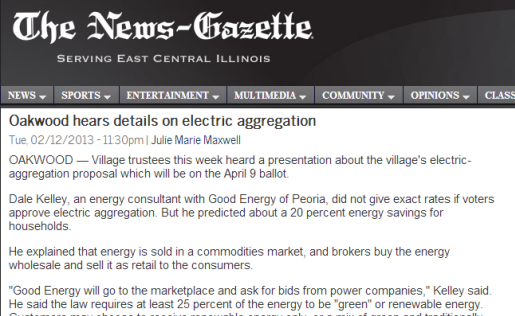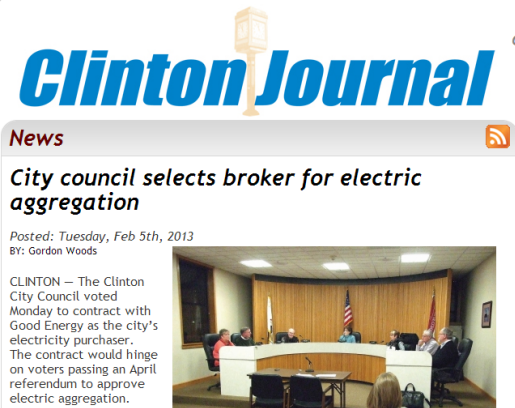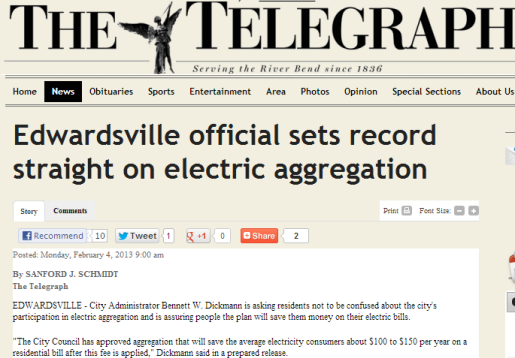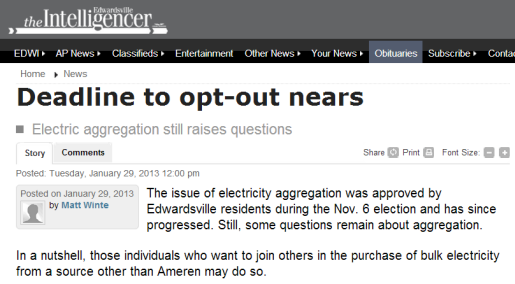Hoopeston City Approves Good Energy
 The Committee for Municipal Electricity Choice | Posted on
The Committee for Municipal Electricity Choice | Posted on  Friday, February 22, 2013 at 01:17PM
Friday, February 22, 2013 at 01:17PM Good Energy was unanimously approved by the Hoopeston City Council to become the consulting firm to help the city through the municipal aggregation process. Originally thought to be a part of the Vermilion County aggregation referendum passed in April, Mayor Bill Crusinberry and the Hoopeston City Council recently learned that that referendum only applied to unincorporated areas of the county. Because of this, they voted to allow a referendum on the April ballot, allowing Hoopeston to join the rest of the Vermilion County municipalities who have contracted Good Energy.
The goal of Good Energy is to save all residents of the counties and municipalities they work with as much as possible on energy costs. They make this happen with municipal aggregation, which is the process of banding municipalities and counties together to purchase energy at wholesale rates directly from the wholesale energy companies. When compared to the contract submitted by Vermilion County, the decision to sign the Good Energy contract was easy.
Jerod McMorris, the Good Energy consultant working with Hoopeston, is excited to start educating residents on what electric aggregation is and how it helps to lower monthly electric bills. To help get him started, McMorris asked the council to aid him in setting up meetings with local organizations, a town hall meeting, and has requested to place an ad on a billboard. This will be the beginning of the education process about the many benefits of aggregation. McMorris expects that residents will approve the referendum in April, as long as they understand exactly how aggregation works.
For more information on municipal aggregation, click here. For the full article, see below.

